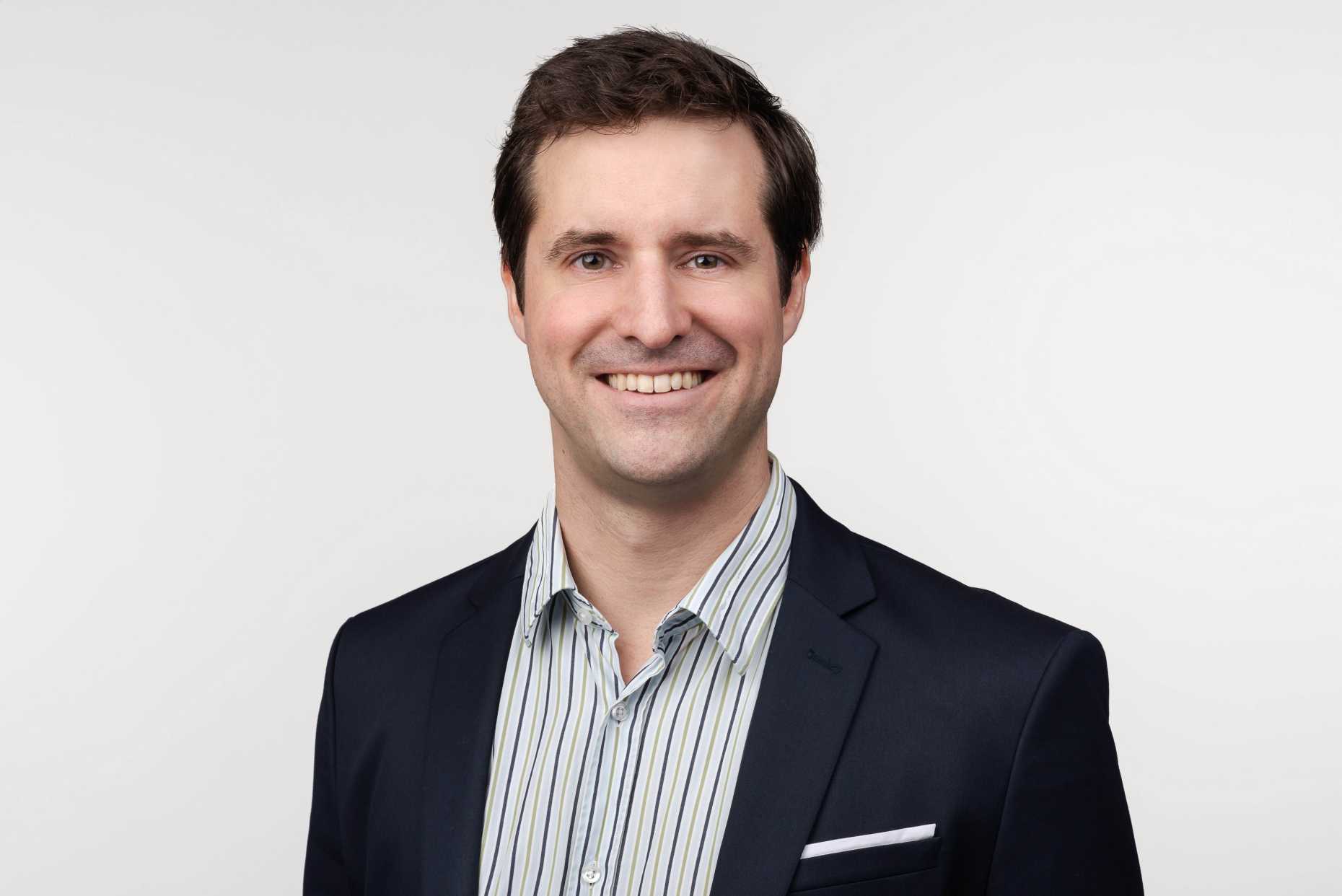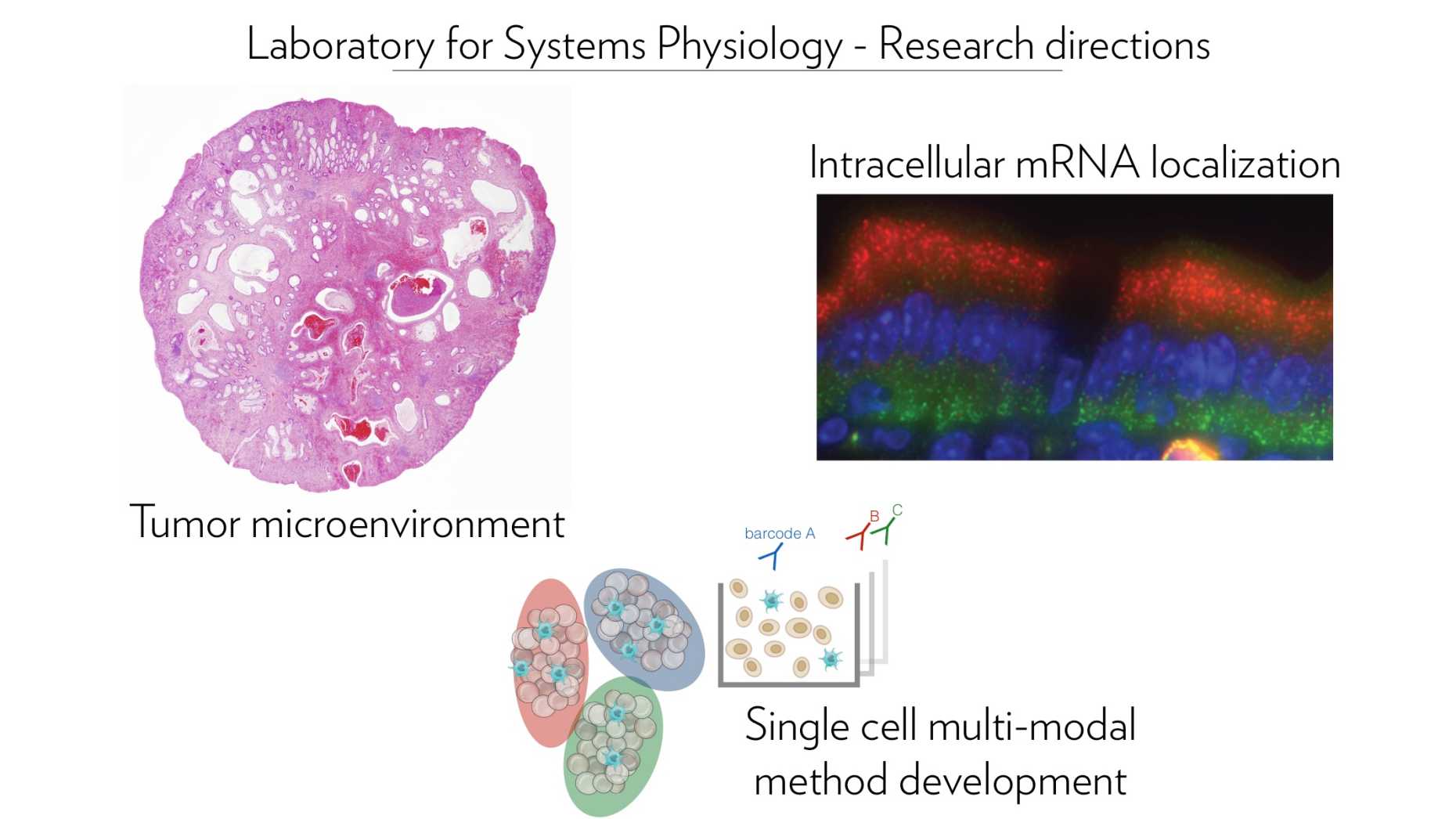New D-BSSE lab connects cellular location with function
The lab of Andreas Moor, our new Assistant Professor of Systems Physiology, is specialised on how cells communicate and collaborate with one another in complex tissues. The medical oncologist and systems biologist is interested in stromal, tumor and immune cells – and develops novel methods for single-cell analyses and tissue physiology. An interview with our new faculty member.

We are very happy to welcome you at the department, Andreas! Can you briefly summarise your bio for us: what did you do before you joined the D-BSSE?
Thanks for the warm welcome! I am very happy and excited to be at the D-BSSE, finally! In terms of my background: I studied medicine at the University of Bern and finished my studies with an MD for work in the field of medical oncology. I then went to ETH Lausanne to do a PhD in molecular cancer research. After that I switched fields and did a Postdoc at the Weizmann Institute in Israel in the Lab of Shalev Itzkovitz and worked on systems biology of mammalian tissues. We moved back to Switzerland in 2018 since I was fortunate to receive a SNSF Eccellenza professorship at the Institute of Molecular Cancer Research at the University of Zurich where I spent 1.5 years and gradually built up my laboratory.
Last week you moved your offices and labs from University of Zurich to the newly renovated 4th floor in the D-BSSE building 1055. On Twitter you already shared your excitement with the community! It would be great to hear more about your plans in research!
Yes, we are really glad that the move went so smoothly. I really have to thank the lab a lot for all the work they put in. And, especially I would like to thank D-BSSE, in particular Niels Bürckert and his team. They managed to complete all the preparations and construction work, fully on time, while the pandemic was going on, this was truly impressive! For those of you who have not been at my talk a year ago when I applied for this position: My Lab is interested in how single cells communicate and collaborate with one another in tissues. Tissues can be very heterogenous in the spatial domain with differing local microenvironments and niches. We have found examples in the mammalian liver and gut where differing microenvironments lead to localized cellular specialization and function. To study this domain of tissue physiology, we are developing and applying methods which enable single cell analyses and preserve the spatial information of the tissue.
One focus of the lab is to apply these approaches to the inter-cellular scale for the study of tumor microenvironment. We are interested in the interactions between tumor cells, stromal cells and immune cells. We further study how tumor cells interact with the host tissues during the initial steps of metastasis establishment. Another major focus of our lab is spatial regulation at the intra-cellular scale. Here, we are interested in how intracellular RNA localization is controlled and why it occurs. We will compare its manifestations in different mammalian tissues and determine if it acts as layer of spatial genome regulation.
A third focus of our lab is developing novel multi-modal methods for single cell analyses. Our aims are to assess cellular transcriptomes and to additionally extract other features such as their spatial niche, their surface proteome, and their expression of important lowly-abundant genes (transcription factors, for example, are usually missed by established technologies).
…you also brought with you a team of 10 to Basel…
Exactly. Some of the team members actually joined us during the pandemic and we had no chance to bring all team members together in the same room for a group picture, I hope this is going to change in the near future. Most of the experimental workers are in the lab and are looking forward to meeting the D-BSSE community.
We recently learned, that one of the three BOTNAR-funded COVID-19 research projects is led by you. Please tell us more about this specific project!
Yes, we are very excited about this opportunity to participate in the Botnar Research Consortium. We are working with blood-samples from patients that have recovered from COVID-19. The idea is that in recovered patients it is likely to find some circulating B-cells which produce neutralizing antibodies that bind to crucial SARS-CoV-2 antigens. We are using exposed peptides of the virus that are coupled to DNA barcodes and we ‘pull’ with those peptides bound B-cells from the blood of recovered patients. We then use single cell genomics to profile the B-cells, their corresponding antibody sequence, their surface proteome and the patient identity with the aim to identify neutralizing clones that could be used therapeutically. Another goal is to establish this pipeline to be prepared for a next wave or for another emerging pathogen in order to be able to respond in a much quicker fashion next time.
Unfortunately, your seminar talk at D-BSSE during spring semester was cancelled. Also, the date for your introductory talk at ETH Zurich has not been set yet. When is the next chance to meet you and your team - either virtually or in person..?
Well, our labs are on the 4th floor of 1055 and you are all most invited to drop by and say ‘Hi’ - as long as you maintain the 2-meter distance rule, of course. And I really hope to make up for this cancelled D-BSSE seminar by giving a talk next semester, and we would like to host an arrival Apéro whenever this will be possible again….
Many, many thanks, Andreas, and all the best to you and your team for settling down at D-BSSE!
This interview took place during the D-BSSE Digital Campus held on 9 June 2020.
